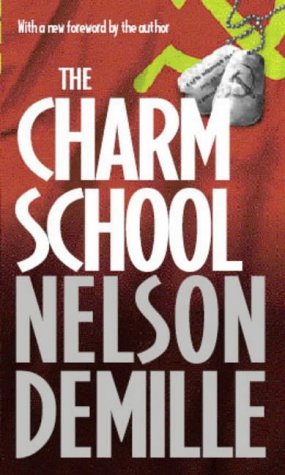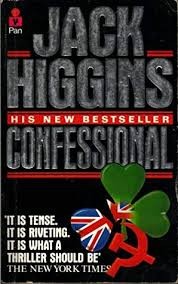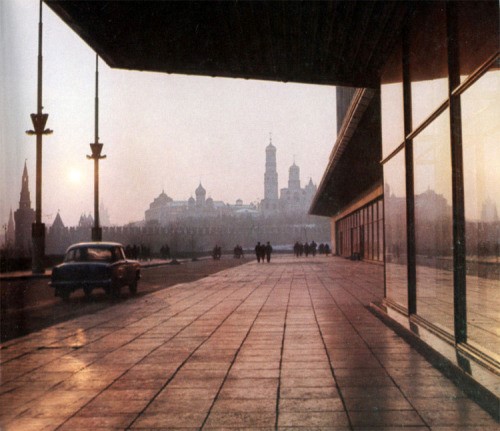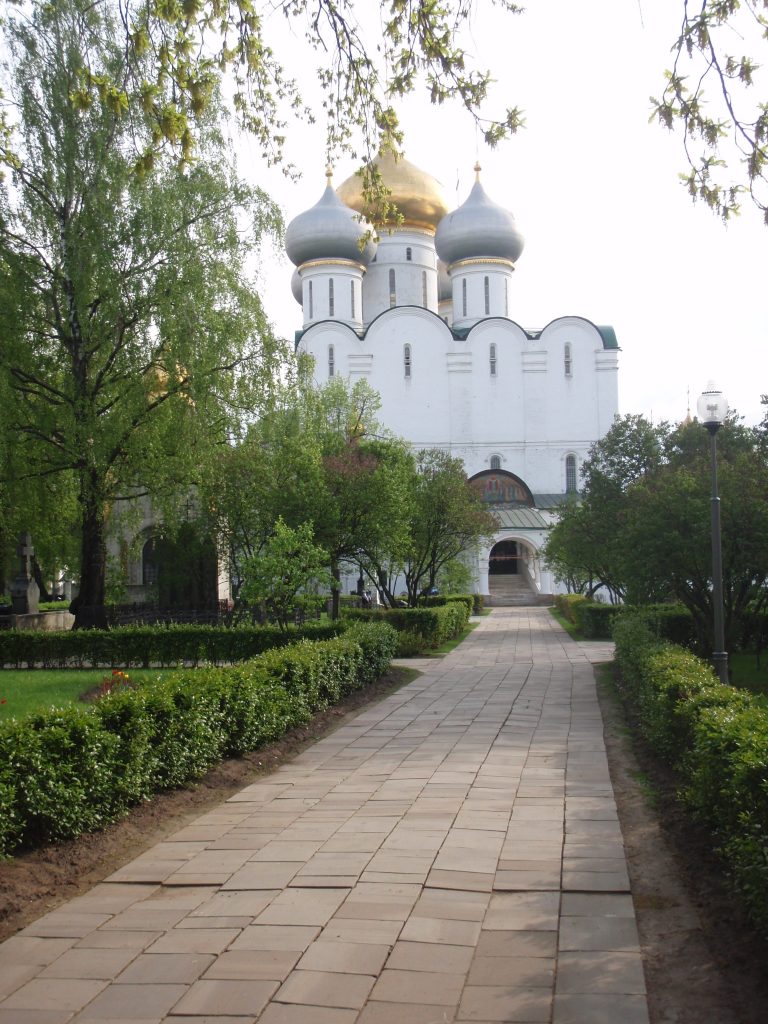
Reading A Quiet End, DeMille’s 2015 novel with a vaguely Russian theme, sent me back to his 1988 thriller The Charm School. A very different, and frankly better, book.
The Charm School is brilliant, both as a thriller and for its knowledge of Russia and the Soviet Union —plenty of details about Soviet life, some great settings in Moscow and beyond, and a plot that is never predictable.
The Sunday Times called The Charm School ‘the Russian spy story to top them all’. The Washington Post, as DeMille reminds his readers in the foreword to my re-release edition from 2000, went for ‘contemporary Cold War fiction doesn’t get much better than this’.
These plaudits are not out of place. When Russiainfiction.com puts together its ‘top thrillers’ list, The Charm School will no doubt feature.
The premise of The Charm School is that the Soviet Union created a spy school where they trained their people to become American, so that they could then be inserted as illegal agents undetected in the United States —an idea reprised in several places before and since, such as the Jack Higgins’ 1985 thriller Confessional, the movie Salt (2010), the TV programme The Americans, and Daniel Silva’s 2015 novel The English Spy.

The spy school so created is an identical mock-up of small town America. Everybody there speaks only English, and the instructors are US servicemen captured in Vietnam and held prisoner in the USSR, supplemented by the odd civilian kidnapped since that time to add to the numbers.
DeMille’s plot starts from the escape of an inmate and his highly fortuitous meeting with that rarest of rare things, a US tourist driving to Moscow in the mid-1980s who just happens to have got lost and gone off track near the spy school on the very day the inmate escapes. Word gets back to the US embassy, and its staff —in the form of air attaché Sam Hollis, press liaison staffer Lisa Rhodes, and CIA man Seth Alevy— get on the case.
The relative originality of the central idea is matched by the unpredictability of the plot. When you have read lots of thrillers, you tend to know what is going to happen. But not in The Charm School. There are some memorable scenes too. The chapter in which Rhodes and Hollis spend the night in a peasant hamlet particularly sticks in the memory.
DeMille visited Moscow to research the settings, and because it is set in the year that I first visited the Soviet Union, I have a nostalgic fondness for his accurate portrayals of Moscow.
An early scene is set in my all-time favourite hotel, the now demolished Rossiya, a vast building just off Red Square, with endless miles of corridors and four main entrances —north, south, east and west.

The scene in question takes place at the south entrance of the Rossiya hotel, the place shown on this Soviet-era photo.
The US guest arriving at the Rossiya did that thing that surely most western tourists did when met with the different style of Soviet service —that is, sullen silence rather than ‘have a nice day’.
Fisher said aloud to himself
‘Welcome to the Rossiya, Mr Fisher. How long will you be staying with us? … Oh, until the KGB comes for me … Very good, sir’
The charm school, p. 34
Now that the Rossiya has been pulled down and its former site landscaped to create Zaryadye Park, the best place to go for that Soviet nostalgia experience and Brezhnev-era architecture is the Cosmos Hotel.
In The Charm School scenes are also set around the Cosmos and nearby VDNKh (Exhibition of Economic Achievements), as well as another wonderful Moscow setting, the Novodevichy convent and cemetery.

Cosmos Hotel 
Novodevichy convent
You can tell The Charm School is set in the 1980s from the description of Moscow as a quiet city.
There were no public bars, no discos, no prostitutes, no street people, no nightlife. No all-night markets, no midnight movies, no midnight mass, no midnight anything. Most of the city was quiet by ten P.M., shut down by eleven, and the last taxis disappeared by twelve.
the charm school, p. 63
Unbelievable if you know today’s Moscow, or even early 1990s Moscow, but it genuinely did appear like that in the late 1980s.
The nature of the plot means that there is a theme at play to be found in a number of superior espionage thrillers —the difficulty and the possibility of adopting a new identity. Robert Littell’s superb Legends deals with this in depth. In The Charm School the main character notes that the Charm School
… took the spycraft ideal of deep cover to its ultimate realisation; it assaulted the very notion of identity that all human beings took for granted
the charm school, p. 486
There are observations around how adopting a nationality is more than just nailing the language. The KGB realised this and so set up a school where recruits learn the minutiae of American life; sayings, sports teams, TV characters, and so on. The US embassy staff reflect on it in a different way
There’s more to being a Russian than the language. It’s like that with any nationality but the Russians are different in unique ways. Did you ever notice that Russian men walk from the shoulders down? American men use their legs.
the charm school, pp. 103-104
Lisa Rhodes is an American of Russian ancestry, and given to waxing lyrical about the real Russia, destroyed by the Soviets.
This is it, Sam. Russia. Not Moscow or Leningrad. Russia. Look at those white birches there. See the small leaves, all red, yellow, and gold …
What could be more Russian than that —tiny coloured birch leaves blowing across a gray sky, across a lonely landscape? It’s so desolate, it’s so beautiful, Sam. The Kremlin can’t change this. It’s immutable, timeless. My God, this is it. This is Russia!
the charm school, p. 120
As if to emphasise the notion of the Soviet authorities interfering with the essence of Russia, there is a scene which echoes exactly my own experience when attending an Easter service at an Orthodox church in 1988.
Lisa stopped about ten yards from the church. Hollis saw six men outside the doors stopping some of the younger people and the families, asking for identification. The men jotted information from the ID cards into notebooks. Hollis spotted another man, posing as a tourist, taking pictures of the people going inside …
Lisa said, ‘They don’t usually stop anyone who looks Western’ …
The KGB man who had been arguing with the young woman intercepted them and said to Hollis, ‘Kartochka!’ Hollis replied in English, ‘I don’t understand a f***ing word you’re saying, Mac.’ The young man looked him over, waved his arm in dismissal, and began to turn to someone else.
the charm school
There is more than the odd cliché about Russia of course, including the one where a Russian posing as a westerner is spotted because when he smokes a cigarette, he straightens it out with his fingers first —an old Soviet habit to spread out the tobacco more evenly.
The Charm School is a must read for anyone who loves Russia-in-fiction thrillers from the Soviet era. As this blog never tires of saying, the reviews here ask two questions — what is the book like? And how does it portray Russia? Back in the late 1980s, Nelson DeMille gave us a memorable thriller that scores top marks.

